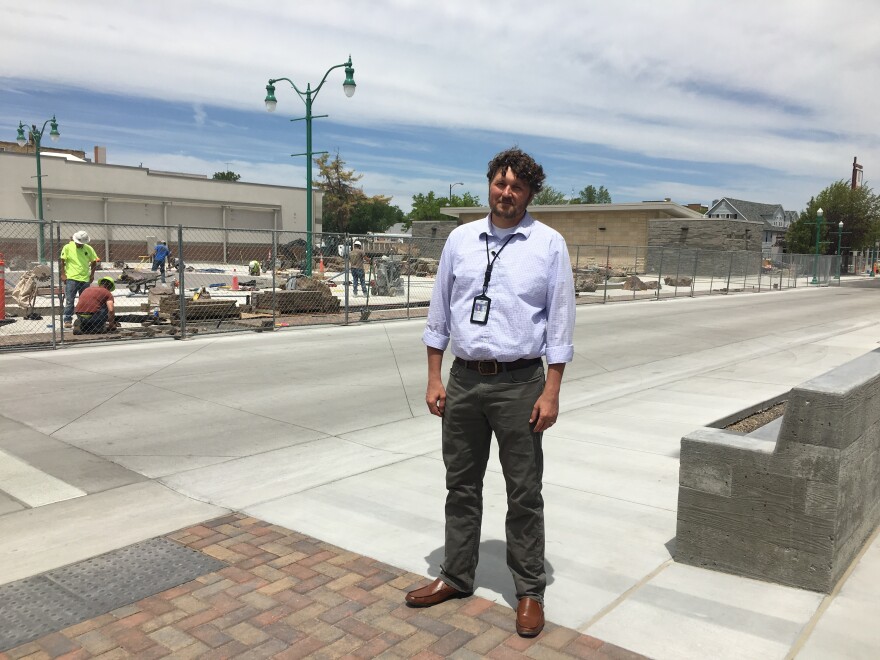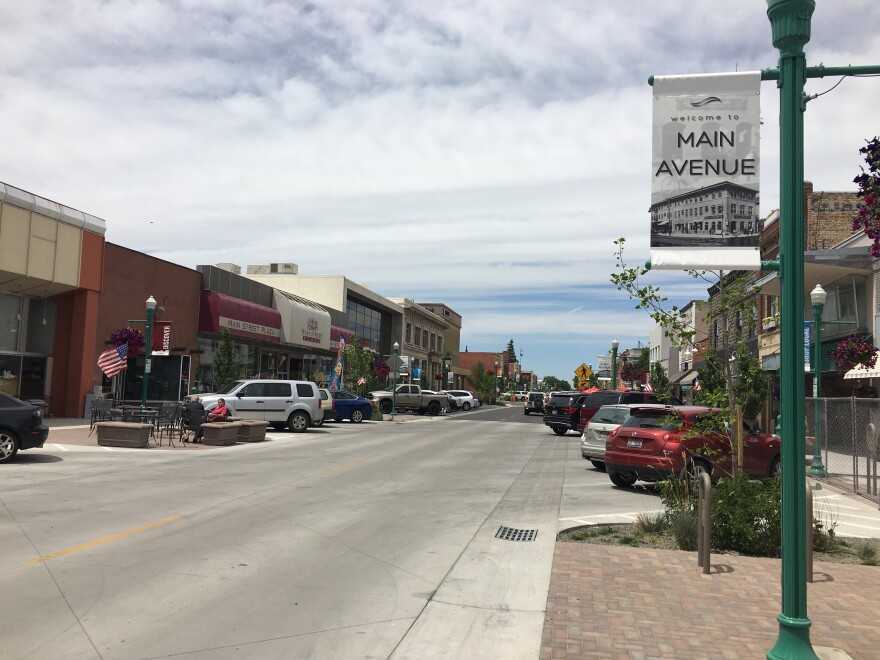It’s 7:00 p.m. after a long day of work, and Rudy and Sami Ashenbrener sit on their back porch in Twin Falls. Their eight-month-old Miles is in his high chair next to them while their dog Hercules runs around their backyard.
Both Sami and Rudy were born and raised in Twin Falls – but that doesn't mean they always saw themselves here.
“When we graduated from high school we thought, ‘Alright, see ya Twin Falls! We’re not coming back here!’" says Sami Ashenbrener.
After going to college out of state, the two moved to Boise. They loved the City of Trees for the breweries and the recreation opportunities – there was always something to do.
But then, Rudy was offered a good position as vice president of a land title company in Twin Falls, and as a physical therapist Sami knew she could get a job anywhere. Besides, Boise’s housing market was climbing fast and traffic was getting annoying.
“At first we were hesitant because we were in Boise and we loved it up there," she says. "But once we moved back, we just realized we were in a perfect phase in our life to be here. Things are a little bit slower pace.”

Rudy is on the board of the Urban Renewal Agency. He says it’s exciting to be in a community that welcomes his input.
“It’s easier to do in Twin," Rudy says, "to get involved with the community, [to] join specific boards and make the decisions to shape the community. Whereas in Boise – it’s so big that it’s so much harder.”
They bought their five-bedroom house that they plan to grow into for $340,000; a similar house in Boise would have been much more expensive. Their lot is almost an acre, dotted with big leafy trees in a well-established neighborhood.
Since then they’ve seen the value of their home increase while other 30-somethings go through bidding wars on smaller places.
“Even if you find [a house in your price range], there’s already five offers on it," Rudy says. "So we lucked out here.”
Houses Go Up, Along With Home Prices
Rui Gomes gets how some people might be frustrated by a limited housing market. He's with Wolverton Homes, a development and building company in the Magic Valley.
“There’s a lot of strain on the market and we’re trying to catch up as fast as we can to try to keep prices at a nice, reasonable rate," says Gomes.
Wolverton Homes has been building in Twin Falls for 25 years. Gomes says tariffs on Canadian lumber have driven up their prices. But even before the tariffs went into effect last year, the town was dealing with a housing shortage that put pressure on some buyers.

“Realtors are coming to us saying ‘we need new homes, we need new areas.’”
The company sells to people from Colorado, Arizona, Washington and Oregon. And yes – quite a number of homes go to California transplants looking to invest in Idaho.
"When you ask some people how they decided on Twin Falls, they say they searched for certain criteria," says Brad Leggett with Wolverton Homes. "Be it water quality, air quality, crime rate, access to healthcare and it just seemed to fit everything they searched for."
Although it’s only June, Wolverton Homes has already surpassed last year’s sales.
But there’s one major headache that slows them down: The company has to compete with other developers in town for the limited pool of contractors.
“Everybody’s kind of draining the workforce and pushing and pulling,” Gomes says.
"Developers are out there looking for projects like this." - Nathan Murray
A few miles away from the new housing developments dotting the map, Nathan Murray stands on the corner of Hansen Street and Main Avenue in downtown.
“We’re right in front of City Hall and across the street from us is the Downtown Commons," gestures Murray, "which is under construction.”
Murray oversees economic development and urban renewal in Twin Falls. In the last two years, urban renewal money has gone to sprucing up Main Avenue’s sidewalks and pavement, plus they added parking. A new city hall just opened in December in what was once a department store.
Next up: The city will soon convert an old thrift store on Main to one of downtown’s first multi-family housing buildings. The first and second floor of the four-story building will be retail and offices.
“That’s a priority for urban renewal – now that we have infrastructure in place – let’s get more people here," he says. "Developers are out there looking for projects like this.”

Murray acknowledges that one downtown apartment building doesn’t solve the town’s housing crunch, and says it’s tough for families looking for two or three-bedroom homes for less than $200,000.
“[A] really healthy economy in Twin would have a mix of all of that. And right now for Twin – it’s kind of that missing middle.”
But he says for the most part, the changes in the town have been sustainable – and the growing pains have been felt less acutely than in Boise. Murray points to the good-paying jobs in agriculture and food processing, along with white collar positions. The city offical says there’s a solid future for people who choose to stay or move to town.
And so far, the Ashenbreners agree.
“Now that we’re back, I can’t believe that more people aren’t moving here. And we were surprised to feel that way. Don’t you think?” asks Sami.
“Yeah, I’m still surprised,” says Rudy.
“We’re going to be in Twin Falls until the day we die probably. And we love it.”

Find reporter Frankie Barnhill on Twitter @FABarnhill
Copyright 2018 Boise State Public Radio




